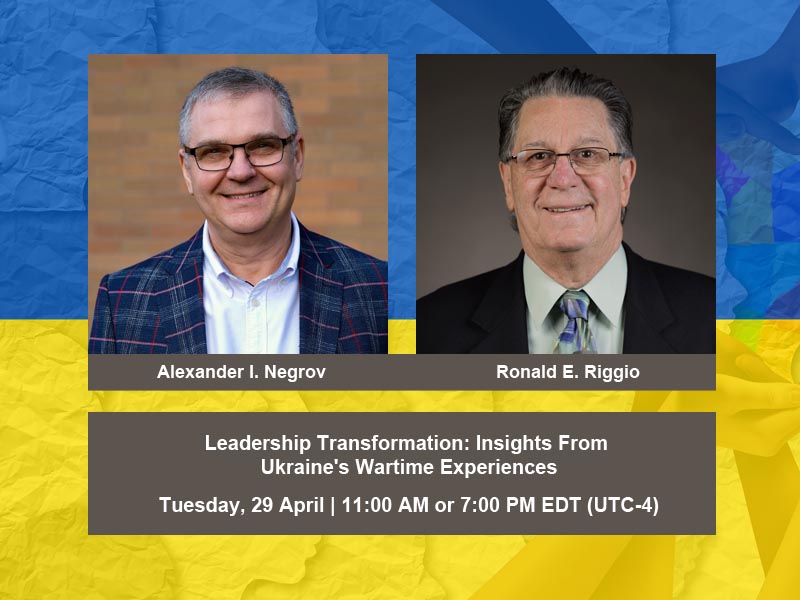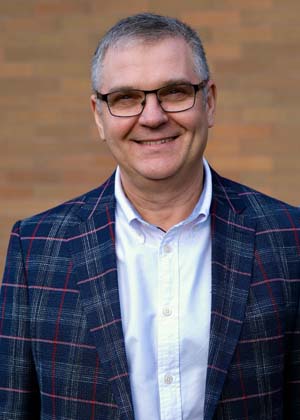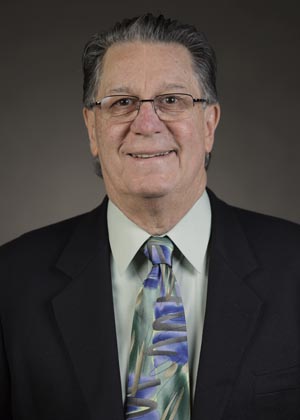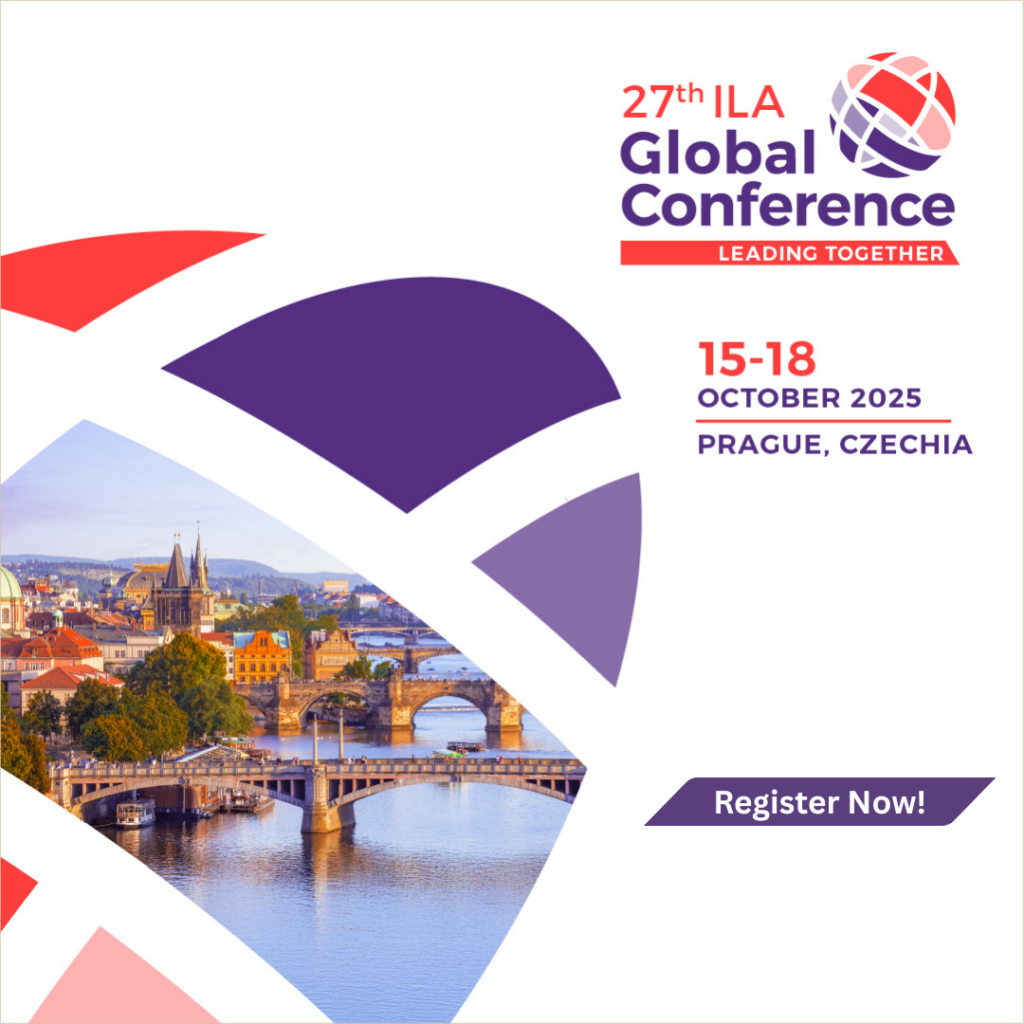
With Drs. Alexander I. Negrov and Ronald E. Riggio
Note: This webinar will be offered at two different times. The content will be the same in each.
Cost: Free to ILA Members; $9.95 for non-members.
Share:
- 29 April 2025, 11 am EDT (UTC-4)
- 29 April 2025, 7 pm EDT (UTC-4)
The ongoing war in Ukraine has reshaped the understanding and practice of leadership among non-military citizens. Beginning with Ukraine’s independence in 1991, progressing with the annexation of Crimea in 2014, and deepening during the full-scale Russian invasion in 2022, this transformation has shifted leadership ideals from power-based models to a more service-oriented, shared approach. Emphasizing volunteerism, shared responsibilities, and community service, this webinar will explore how these changes have influenced leadership perceptions across Ukraine, particularly at the grassroots level.
We will discuss how leadership perceptions and practices have shifted during the war, focusing on personal growth, self-awareness, and humility. These shifts have become central to leadership in Ukraine, as individuals embraced self-reflection, ethical action, and collective responsibility to inspire others amidst the tragedy of war.
Leadership practices also transformed as people became displaced, assuming new roles and responsibilities while thinking about how to rebuild the country after the war. The webinar will highlight key themes such as resilience, leadership development among youth, and the growing importance of emotional intelligence and care for the traumatized and veterans. We will also explore the spiritual components that have guided many Ukrainians through these difficult times, shaping leadership and fostering unity.
Drawing from interviews with Ukrainian citizens, organizational and community leaders, and youth, we will analyze the evolving role of shared leadership during wartime. We’ll offer insights into the lessons learned from these experiences, providing valuable takeaways for leaders in conflict zones and those seeking to understand leadership transformation in times of war. Join us for a thought-provoking discussion on how Ukraine’s wartime experience has redefined leadership.
By attending this webinar, participants will:
- Gain a deeper understanding of leadership phenomena in the cultural context of Ukraine, a nation experiencing ongoing war.
- Learn how resilience, patriotism, shared responsibility, and service have become central to leadership in wartime Ukraine, with a focus on self-awareness, love for the country, humility, ethical action, and the importance of community service during times of crisis.
- Explore the evolving role of youth in leadership development, emphasizing how adults are cultivating young people to care for their communities and stand firm in the face of adversity.
- Examine the spiritual and ethical components of leadership in Ukraine, and how these elements are fostering unity and inspiring organizational leaders to guide others amidst the war and uncertainties of the future.
Interested in learning more? Check out their new book, Leadership in Ukraine: Studies During Wartime.

Alexander Negrov, Ph.D., is a theologian, leadership researcher, and the founder and President of Hodos Institute. With over thirty years of experience, he focuses on advancing spiritual, ethical, and effective leadership in the U.S. and Ukraine. He has published books and articles, presented at international conferences, and conducted research on organizational and cross-cultural leadership. He is also a speaker, teacher, and spiritual coach, impacting leadership practices globally. Alexander serves as a consultant and board member for several educational initiatives in Ukraine.

Ronald E. Riggio, Ph.D., is the Henry R. Kravis Professor of Leadership and Organizational Psychology at Claremont McKenna College. His research focuses on charismatic and transformational leadership, nonverbal and verbal communication skills, and leadership development across the lifespan. Dr. Riggio has authored or edited nearly two dozen books and published over 150 articles and book chapters. He has also consulted with organizations in business, education, and non-profits, shaping leadership practices and fostering leadership potential across various sectors.


